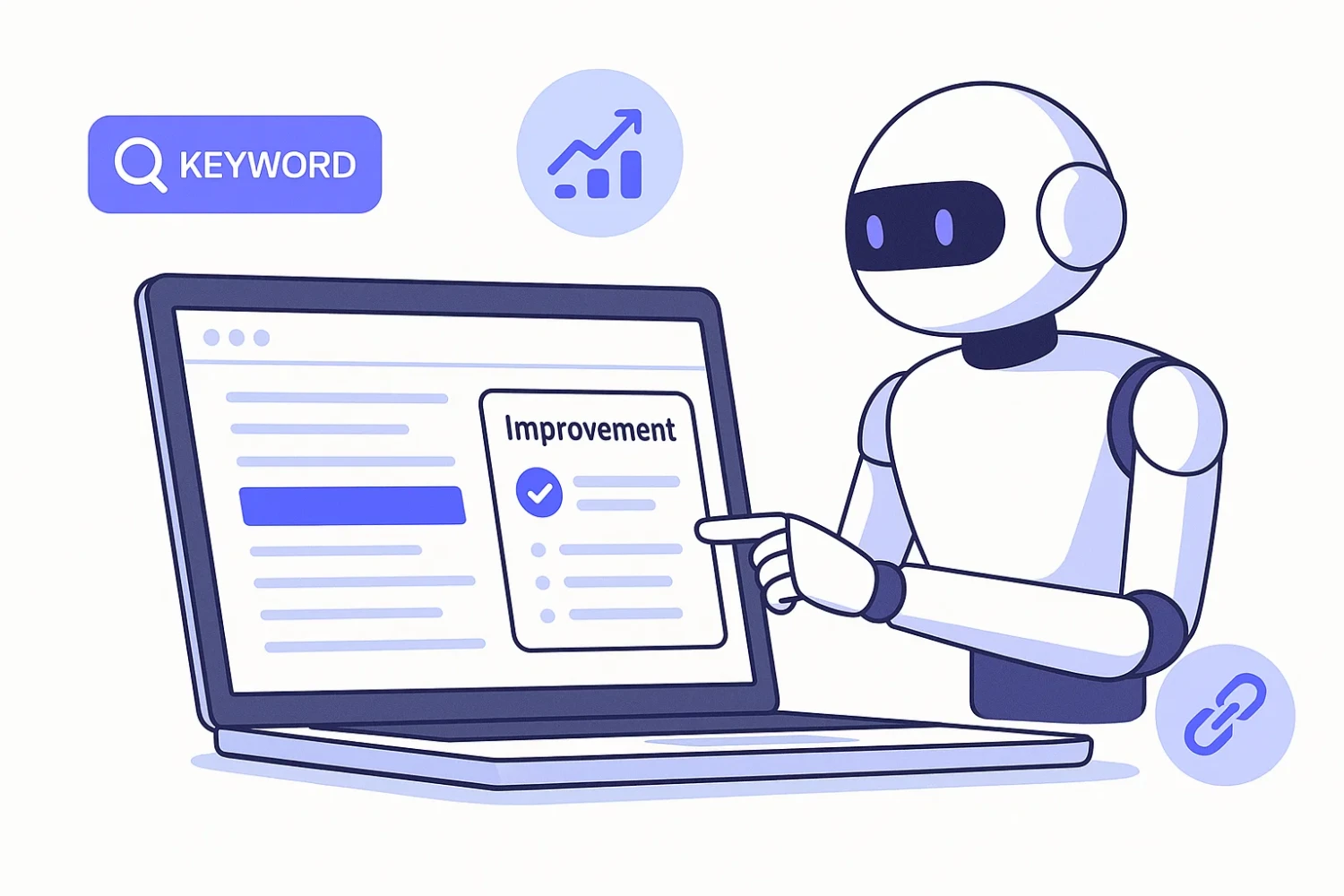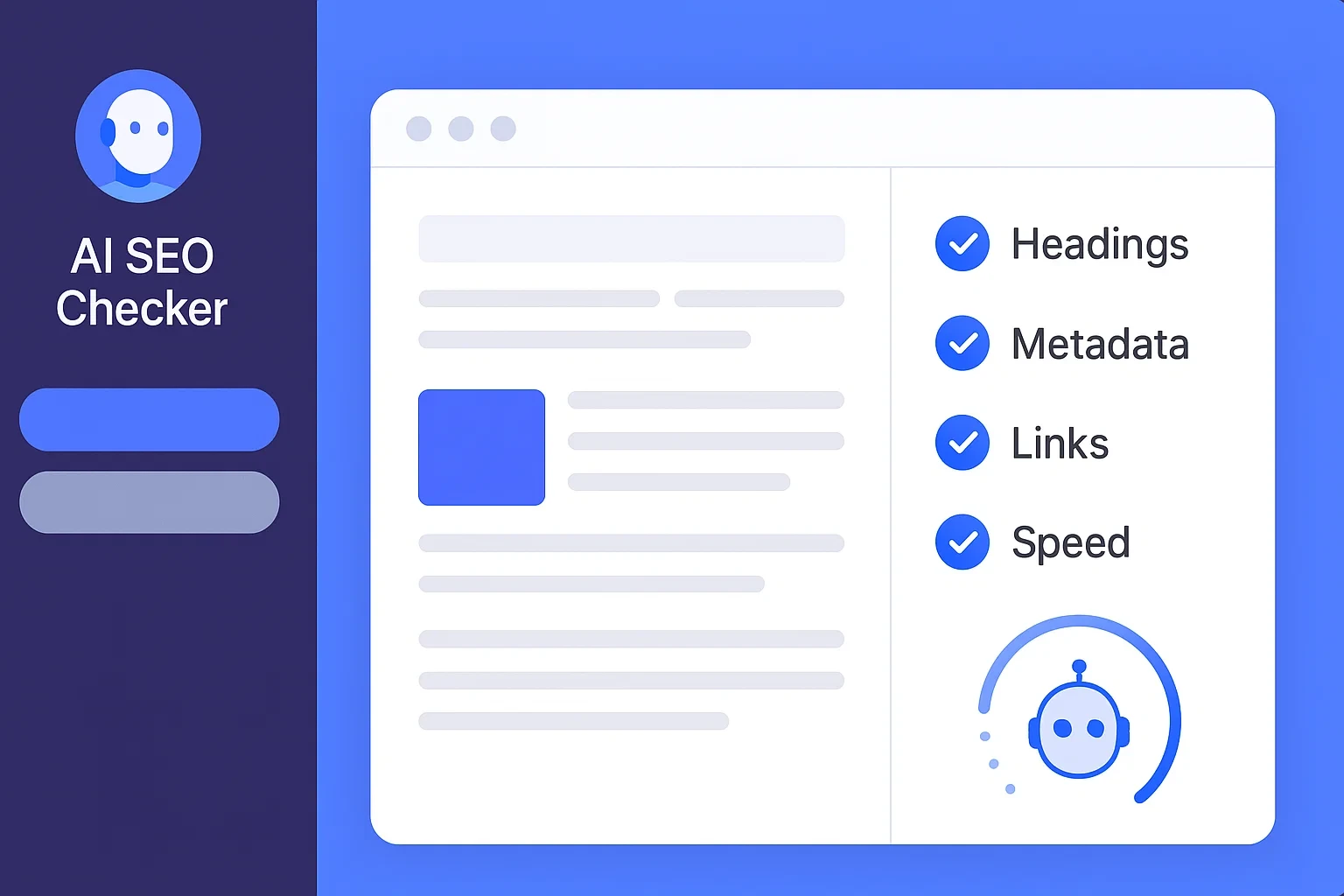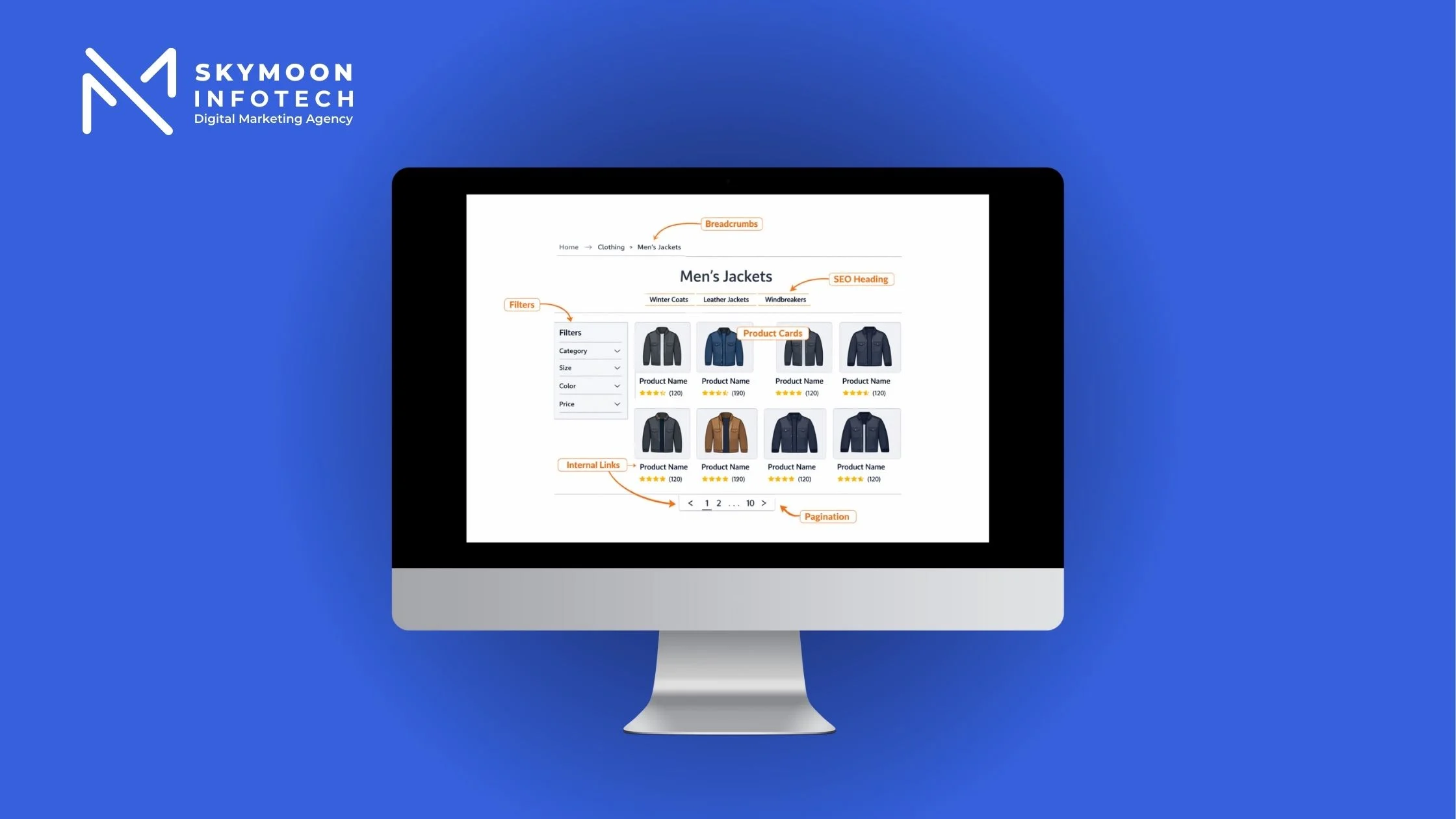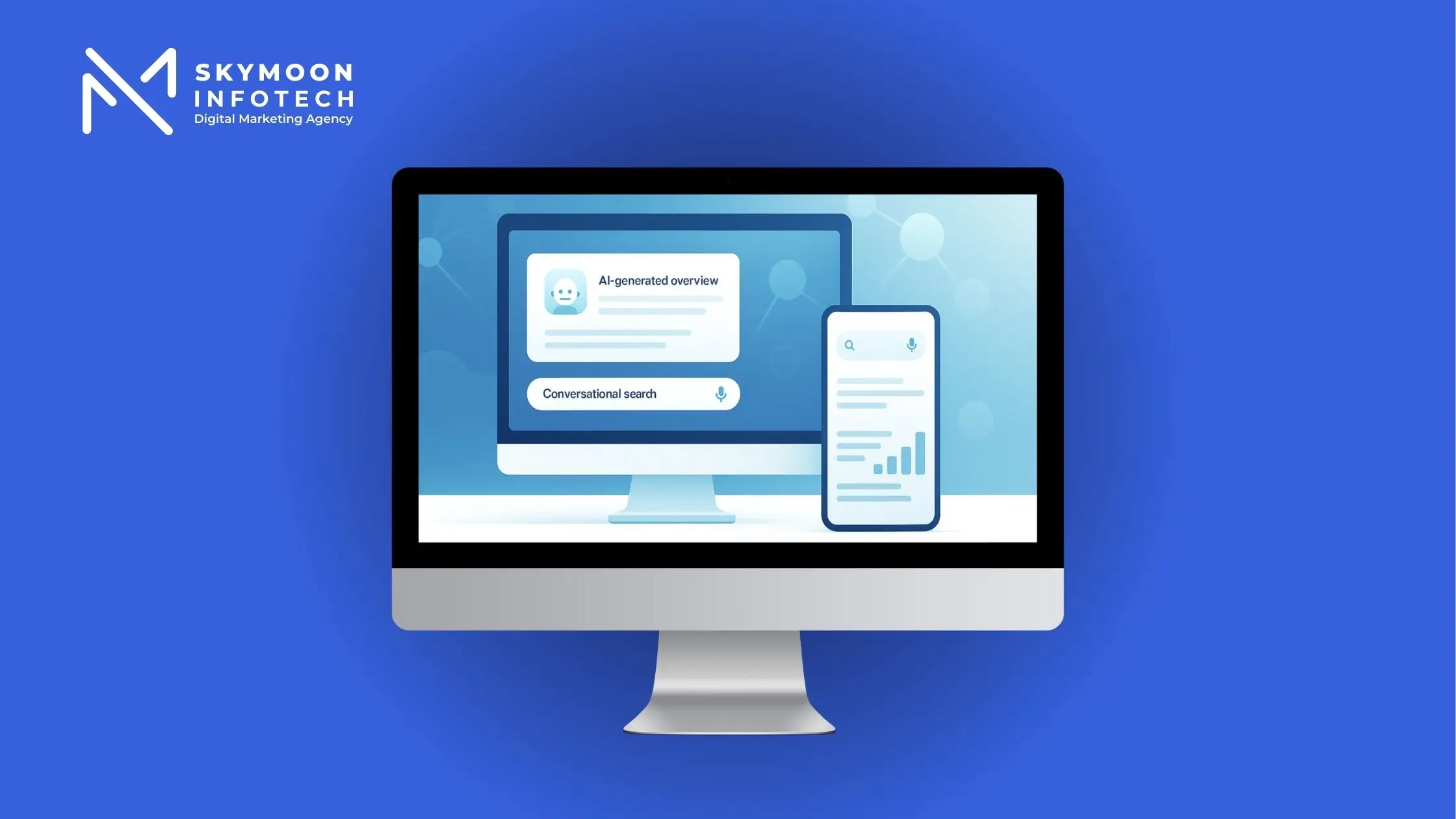AI SEO tools are redefining how brands approach digital marketing. Unlike traditional methods of search engine optimization, which rely heavily on manual audits and trial-and-error, these platforms use advanced artificial intelligence SEO tools to automate repetitive tasks, analyze massive datasets, and recommend changes that align with how search engines evaluate websites.
From keyword discovery to content scoring, AI brings speed, accuracy, and scalability to optimization. What once took hours of research can now be accomplished in minutes with ai-powered platforms. More importantly, these systems can forecast the likely impact of adjustments — such as updating metadata, improving topical coverage, or refining internal linking — making SEO less about guesswork and more about data-driven action.
As competition for top rankings grows, AI’s role in SEO is moving from optional to essential. This blog explores the leading tools available in 2025, their pricing, and the use cases they serve best, so you can identify the platform that fits your business goals.
What Are AI SEO Tools?
AI SEO tools are digital platforms that apply artificial intelligence and machine learning to optimize websites. Instead of relying solely on human input, these ai-powered seo tools process vast amounts of data to provide actionable recommendations in real time.
At their core, they use natural language processing (NLP) to evaluate content against search intent. For instance, an artificial intelligence SEO tool can analyze the top-ranking pages for a keyword, identify gaps in topical depth, and suggest improvements such as additional headings, semantic terms, or related questions. This ensures that your content speaks the same “language” as search engines.
But these tools go beyond content alone. Many platforms also streamline technical SEO by checking crawlability, page speed, structured data, and internal linking structures. Others monitor competitors, highlight keyword opportunities, and even forecast how ranking signals might evolve.
The value of AI lies in making SEO more efficient, scalable, and predictable. By combining automation with human strategy, businesses can align more closely with how algorithms work while focusing on creating value for users.
Why Use AI in Search Engine Optimization?
The landscape of search engine optimization has become increasingly complex. Ranking factors now span everything from content quality to site performance and user behavior. Handling these manually is time-consuming, which is why businesses are adopting ai-powered platforms.
One key advantage of using AI SEO tools is speed. Algorithms can scan thousands of pages in seconds, providing instant insights on how your site compares with competitors. Instead of waiting for monthly reports, teams receive real-time guidance on what to adjust immediately.
Accuracy is another major benefit. Artificial intelligence SEO tools evaluate not just keywords but also semantic context, user intent, and topical authority. This reduces the risk of optimizing for terms that won’t drive meaningful results.
Finally, scalability makes AI indispensable. As websites grow, managing hundreds or thousands of pages becomes unmanageable with manual processes. AI systems ensure consistency in on-page optimization, keyword clustering, and technical audits across every section of a site. The result: marketers spend less time on repetitive tasks and more time shaping strategy.
In short, AI isn’t replacing SEO professionals—it’s empowering them. By combining machine efficiency with human creativity, teams can achieve greater visibility, engagement, and long-term growth.

Best AI SEO Tools for Content Optimization
Creating high-performing content is still the core of SEO. Ai content optimization tools simplify this process by comparing your draft with top-ranking pages, highlighting missing entities, and recommending structural improvements. Among the most popular platforms are Clearscope, Surfer, MarketMuse, Jasper, and Frase — each with strengths that fit different needs.
Clearscope vs Surfer is one of the most common comparisons. Clearscope is known for its clean interface and precise keyword recommendations. It helps writers focus on semantic terms that improve topical authority. Surfer, by contrast, integrates seamlessly with Google Docs and WordPress, offering real-time scoring as you write. While Clearscope is often praised for accuracy, Surfer wins on usability and integrations.
For marketers exploring MarketMuse alternatives, the original tool still delivers powerful AI-driven briefs that deepen coverage of complex topics. However, Surfer and Frase offer more budget-friendly options while covering many of the same features.
Jasper SEO (AI writing assistant) takes a different approach by generating copy. When combined with Surfer, Jasper not only produces text but also optimizes it in real time. This duo is popular among content teams looking to scale output quickly.
Finally, Frase SEO specializes in intent analysis and outline generation. It pulls key questions directly from the SERP and turns them into ready-to-use briefs, making it especially useful for blog and FAQ content.
Together, these artificial intelligence SEO tools reduce guesswork and give writers a competitive edge by aligning every draft with proven ranking factors.
AI SEO Tools for Keyword Research & Strategy
Every strong content strategy begins with the right keywords. Traditional research tools generate long lists, but they don’t always explain intent. Modern ai keyword research tools solve this problem by grouping queries into clusters, identifying semantic connections, and mapping them directly to user intent.
SEMrush AI is a standout for building topic clusters. It analyzes SERPs at scale, shows gaps in competitor coverage, and even forecasts keyword difficulty over time. This makes it easier to plan pillar pages and supporting content that builds topical authority.
Ahrefs AI takes a complementary approach. Its advanced difficulty scoring considers not only backlinks but also contextual relevance and entity coverage. This ensures you don’t waste resources chasing terms with little payoff.
Beyond the big names, smaller artificial intelligence SEO tools focus purely on clustering and entity discovery. These platforms help teams spot new niches before they become saturated. For agencies managing multiple sites, AI-driven keyword research provides a scalable way to allocate effort where it matters most.
The bottom line: AI tools move keyword planning from reactive to predictive. Instead of chasing what competitors rank for today, you can anticipate what users will search for tomorrow.
On-Page & Technical SEO with AI
Even the best content strategy fails if pages are poorly optimized. This is where ai seo checker platforms play a vital role. These tools scan headings, metadata, keyword usage, and readability, then generate instant reports with clear improvement steps. Instead of manually reviewing each page, teams can detect issues in seconds.
AI on-page seo tools also go deeper than surface-level audits. They recommend internal linking opportunities, check schema markup, and analyze content structure for both readers and crawlers. Many can even test how small tweaks—like adjusting header hierarchy or adding semantic keywords—impact overall content scores.
On the technical side, AI streamlines site-wide audits. Tools can crawl thousands of URLs, flag broken links, highlight speed issues, and detect duplicate content at scale. This level of automation ensures consistency across large sites, where manual checks would be impossible.
Together, these artificial intelligence SEO tools reduce human error and give marketers confidence that every page meets both algorithmic and user expectations. By pairing them with strong keyword research and content optimization platforms, you create a complete, AI-driven SEO workflow.

Free & Affordable AI SEO Tools
Not every business needs an enterprise subscription to start leveraging AI. A growing number of free ai seo tools offer essential features such as outline generation, SERP analysis, and content scoring. While they may come with limits on usage or integrations, they provide an excellent entry point for startups, freelancers, and small businesses testing AI for the first time.
For example, free Chrome extensions and basic versions of popular platforms can highlight keyword gaps, suggest semantic terms, or provide quick readability scores. These lightweight solutions are perfect for experimenting with workflows before committing to a paid plan.
When evaluating upgrades, it’s important to review ai seo tools pricing carefully. Subscription tiers often scale based on the number of users, projects, or credits. Enterprise plans add collaboration features, integrations with CMS platforms, and advanced analytics. By comparing costs against potential time savings, teams can select the option that balances affordability with capability.
Starting with free tools and moving up as your needs grow ensures you don’t overspend while still gaining the competitive advantages of AI-driven SEO.
Comparing Top AI-Powered Platforms
Beyond niche editors and checkers, several full-suite platforms now combine research, optimization, and reporting. SEMrush AI has expanded its role as a comprehensive marketing hub, offering keyword clustering, content briefs, and predictive analytics that scale easily for agencies and enterprises.
Ahrefs AI focuses heavily on backlinks and topical relevance. Its advanced algorithms go beyond raw keyword difficulty to consider semantic connections and link quality, making it ideal for strategists who rely on deep competitor intelligence.
Meanwhile, SEO.ai is gaining traction as a streamlined option for small businesses. It blends AI-powered content generation with SERP-driven recommendations, providing an affordable yet effective solution for those who don’t need all the features of enterprise platforms.
Choosing the right mix often depends on scale: pair one research powerhouse (like SEMrush or Ahrefs) with one content-focused tool to keep workflows efficient.
Emerging Trends – GEO & AI Visibility
Generative search has introduced a new dimension to SEO. Instead of only competing for blue-link rankings, brands must now ask: are we visible in AI-generated answers? This is where geo tools—short for Generative Engine Optimization tools—come into play.
These platforms measure whether your content appears in AI-driven responses across engines and assistants. For example, tools like Search Atlas and Wix’s AI Visibility dashboard track mentions, highlight missed opportunities, and guide content updates that improve inclusion in generative summaries.
AI visibility is particularly important for thought leadership content, FAQs, and product-based searches. If your brand isn’t cited in AI outputs, you risk losing traffic to competitors—even if you rank well organically. Optimizing for this new layer involves adding structured data, updating FAQs, and ensuring concise, authoritative answers.
While GEO is still evolving, early adoption provides a competitive edge. By monitoring AI visibility now, businesses can future-proof their SEO strategies and adapt quickly as generative search continues to reshape how users discover information.
Final Thoughts
The rise of AI SEO tools signals a shift in how digital marketing operates. Instead of relying only on manual audits, marketers now have access to artificial intelligence SEO tools that handle research, analysis, and optimization at scale. By blending automation with human creativity, these platforms bring efficiency, accuracy, and smarter workflows to search engine optimization.
Whether you start with free tools or adopt enterprise suites, the key is consistency. Choose one content optimizer, one research suite, and one auditing tool to standardize processes across your team. As AI-driven search evolves, especially with the growth of GEO and ai-powered features, keeping your strategy flexible will ensure your brand stays visible.
In 2025 and beyond, success won’t be about using AI occasionally—it will be about embedding it into every stage of your SEO process. Contact us to align tools with your goals.
FAQs
What are the best AI SEO tools in 2025?
The best options depend on your goals. For content optimization, tools like Clearscope, Surfer, and Frase SEO excel. For research, SEMrush AI and Ahrefs AI lead the market.
How do artificial intelligence SEO tools improve rankings?
They analyze SERPs, highlight gaps, and suggest optimizations. By aligning with user intent and topical depth, artificial intelligence SEO tools help content rank faster.
Which free AI SEO tools are worth trying?
Popular free AI SEO tools include basic versions of Surfer, SEO.ai, and browser plugins that provide content scores and outline generation.
Are ai-powered SEO tools better than traditional software?
Yes, ai-powered seo tools add NLP, clustering, and predictive insights. They complement traditional crawlers and analytics by delivering context-driven recommendations.
What role do GEO tools play in modern SEO?
Geo tools measure AI visibility in generative search results. They show whether your brand is cited in AI answer boxes and guide strategies to improve inclusion.
How do AI SEO tools compare in pricing?
AI SEO tools pricing varies widely. Free versions cover basics like outlines and audits, while premium plans (Clearscope, Surfer, SEMrush AI) range from $30 to $300+ monthly depending on features, seats, and integrations.
Can AI SEO tools replace human SEO experts?
No. While artificial intelligence SEO tools automate tasks like keyword clustering and audits, they can’t replace human strategy and creativity. The best results come from combining ai-powered platforms with expert oversight.








